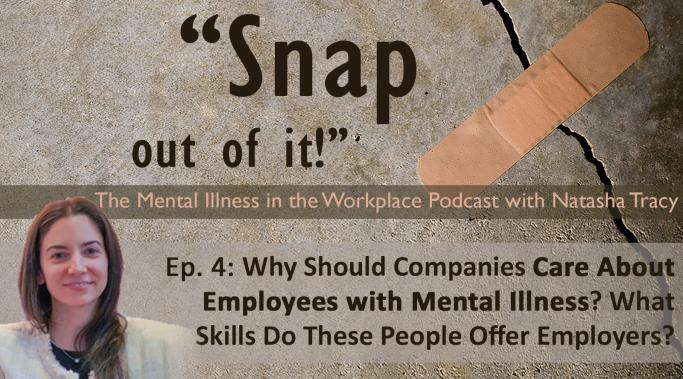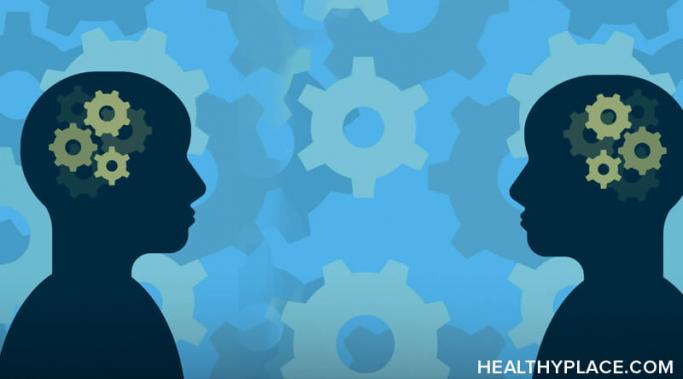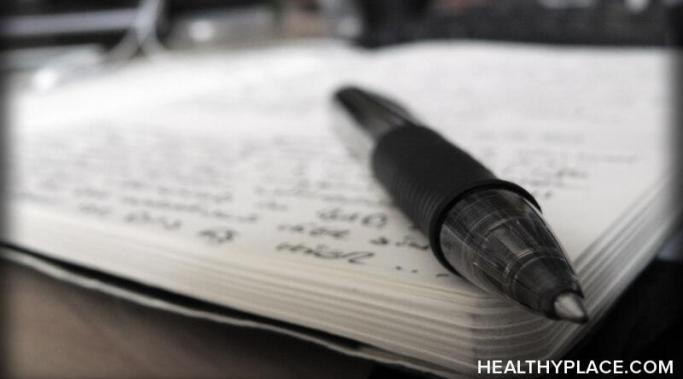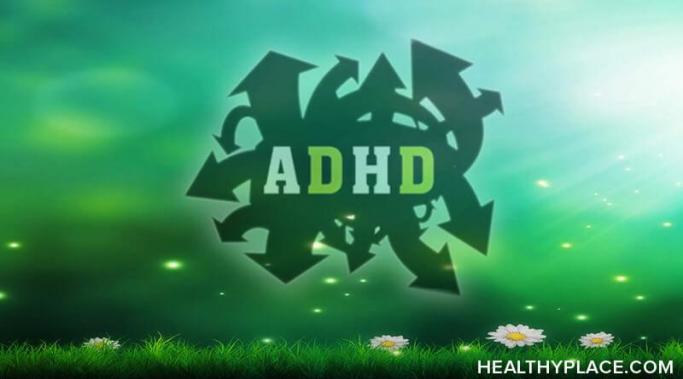Blogs
When I reflect on my recovery from mental illness, it comes down to three key factors. This blog will go over these three things. I know how difficult the struggle is with mental illness, so I hope they’re helpful to others.
"Snap Out of It!" talks to Christina McCarthy of One Mind at Work, the leading brain health nonprofit committed to healing the lives of people impacted by brain illness and injury through global, collaborative action. Christina talks about both the moral and the business case for making workplaces accessible to those with mental illness and how her past experiences have driven her to care deeply about mental illness. She also talks about the unique gifts that those with mental illness offer a workplace.
A few days ago, my schizoaffective anxiety almost convinced me that I was dying--again. Here’s what happened.
The next global pandemic is here, and it's not what we expected. Mental health is at a tipping point in the United States and the world. Even before the COVID-19 pandemic, anxiety, depression, and other mental health disorders began steadily trending upward. With one global pandemic slowly moving into the scope of our rearview mirror, another timely and urgent pandemic has prevailed: mental health.
As someone who has been a professional writer for almost 10 years (and a writing enthusiast for my whole life), I am a firm believer in journaling. Granted, I have not maintained a consistent journaling rhythm in the season where I find myself now. But when I commit to this self-care practice on a regular basis, I feel connected to my goals, priorities, and intentions for healing. Moreover, I am compelled to take meaningful, decisive actions that align with those priorities. So if you, like me, have fallen into a journaling rut over the past weeks or months, here are some journaling topics to refuel your motivation in eating disorder recovery.
There was a time in my life when I was irate and unhappy with my environment and everyone around me. I would lash out at the slightest inconvenience and feel justified in my actions because of my trauma. I continued this behavior until I started therapy. After years of extensive therapy, I've realized those actions were not helpful, and I feel more empathy after verbal abuse than before it.
Relapse is a possibility every self-harmer faces during recovery—but is it normal to miss hurting yourself once you get clean?
I wrote many blog posts this past year about my struggles late last summer with weeks of acute panic and anxiety that left me traumatized. I attended weekly therapy and worked hard for almost a year to get to a point where I could finally revisit the place where the worst of the trauma occurred, which I did, successfully. With that said, I'm wondering if therapy still makes sense for me.
Surviving borderline personality disorder (BPD) is no small victory. I am incredibly grateful to myself for choosing life at a time when my pain seemed infinite. Last time I spoke about why I did not consider suicide as a child. This time, I talk about why I did consider suicide as an adult. (Note: This post contains a trigger warning.)
When we think of ways to counter attention-deficit/hyperactivity disorder (ADHD), sleep may not be at the top of anyone's list. However, enforcing sleep hygiene is an incredible tool I use for suppressing ADHD-related symptoms. Along with medication and exercise, good sleep hygiene forms the backbone of my attack on ADHD. My body took a while to adjust to a firm schedule, but it was worth persevering as the benefits of sleep can't be overestimated.









